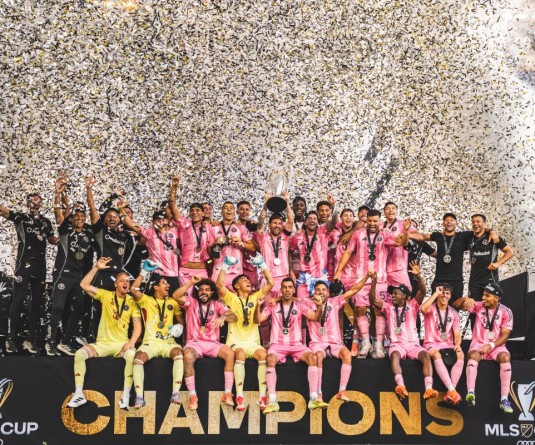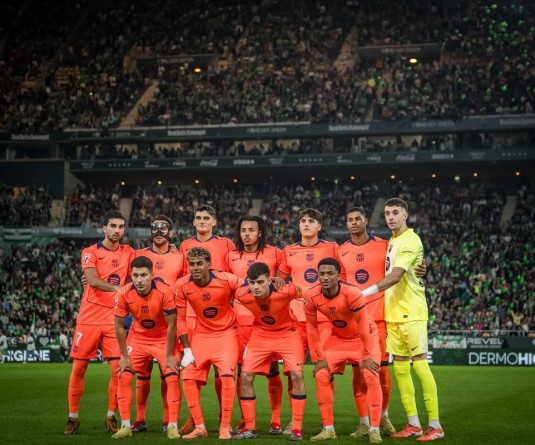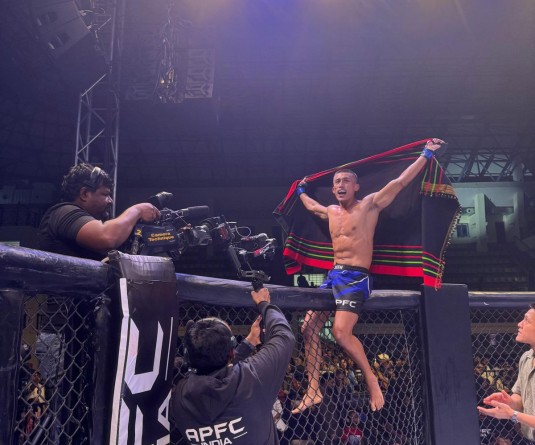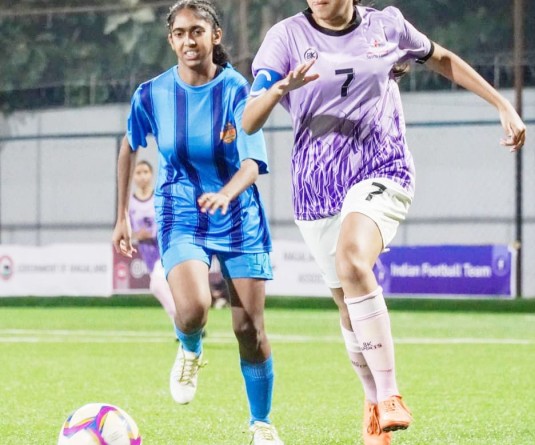IANS Photo

Mumbai, September 17 (IANS) The field hockey competitions at the Asian Games always carry an extra aura as besides getting the gold medal, the winner also gains a berth in the subsequent Olympic Games.
Usually held in the middle of two Olympic Games, the Asian Games field hockey competition not only bestows upon the winner supremacy in the continent, but also the added advantage of early qualification for the Olympics, thus the chance of planning and preparing for the mega event.
The gold medal winners in the women's and men's hockey competitions at the 19th Asian Games set to open at Hangzhou, China, on September 23 will seal their berths to next year's Paris Olympic Games, joining hosts France, Australia and the Netherlands as the fourth among the 12 teams that will make up the field in each section.
Hangzhou is a bigger challenge for both the Indian teams, as the competition provides the Men and Women in Blue a chance to reaffirm that the success at the Tokyo Olympics a couple of years back was no flash in the pan.
At Tokyo, the Indian men's team won a historic bronze medal -- the country's first medal at the Olympics in four decades. The women too covered themselves in glory as the team finished fourth, narrowly missing out on the bronze medal.
Thus, the 12-team competitions in men's and women's sections in Hangzhou will be a chance to clinch their berths for the Paris Olympics and at the same time maintain the upswing in their fortunes since Tokyo 2020.
The hockey competitions at Hangzhou will be held at the Gongshu Canal Sports Park Stadium with 12 teams in the fray in the men's competition and 10 in women's.
Considering their current strength, the World No.3 Indian men's team is the favourite to win the Asian Games title, their first continental-level title since the 2014 edition in Incheon, South Korea, when they beat archrivals Pakistan in a penalty shoot-out to win the gold.
In the 2018 edition in Jakarta, the Indian men won a bronze even as Japan surprised everyone by winning the gold.
The men's hockey team has played in every edition since 1958 when hockey made its Asian Games debut. Except in 2006 when they finished 5th, India won at least one medal in every edition.
In Hangzhou, the men's hockey competition will be between 12 teams divided into two groups of six each, with India placed in Pool A with defending champions Japan, archrivals Pakistan, Bangladesh, Singapore and Uzbekistan as the other teams.
Pool B includes hosts China, Indonesia, four-time gold medallist South Korea, Malaysia, Oman and Thailand.
The top two teams from each group after the round-robin stage will make the semifinals.
Though Pool A looks tougher than Pool B on paper, going by their rankings, India should easily top Pool A, though Japan and Pakistan are capable of upsetting their applecart.
Japan had held India to a 1-1 draw in the group stage of the Asian Champions Trophy held in Chennai last month, though India did blank the team from the Land of the Rising Sun 5-0 in the semifinals on the way to the title.
Head coach Craig Fulton has picked a strong and experienced squad with stars like P.R. Sreejesh and Manpreet Singh in the team, both playing their third Asian Games.
Both of them won in Incheon in 2014 and the bronze medal in the 2018 edition and will be hoping to add another gold to their trophy cabinet.
The team led by prolific scorer Harmanpreet Singh has a few young players like Sanjay and Nilkanta Sharma. The forward line sports a new look in the absence of experienced Akashdeep Singh and Karthi Selvam.
India will open their campaign in Hangzhou against Uzbekistan on September 24 and will meet defending champions Japan on September 28 and archrivals Pakistan on September 30.
In the women's section, Savita Punia's Indian team is placed in Pool A alongside South Korea, Malaysia, Hong Kong and Singapore, while Pool B includes hosts China, defending champions Japan, Indonesia, Kazakhstan and Thailand in the 10-team competition.
The key clashes in the preliminary round for the team coached by Janneke Schopman will be against former champions South Korea on October 1, and Malaysia on September 29. India will need to beat both of them or at least one of them to advance to the semifinals.
The women's team led by Savita Punia has experienced players like vice-captain Deep Grace Ekka, Navneet Kaur, Deepika, Lalremsiami and Vandana Katariya.
The team will open its campaign against Singapore on September 27 and should make it to the semifinals unless it commits a major harakiri.
Both the Indian teams enter the competition aiming for a medal, but claiming anything other than the gold would be a huge disappointment, both for the teams and the fans alike.
That would mean India will have to go through the rigmarole of the Olympic Qualifying Tournaments to claim their berths at the Paris Olympic Games. It's an unnecessary hassle the teams would like to avoid.
The teams will have to be quite consistent in their performance throughout the Asian Games to fulfil their dreams. But consistency is what they have lacked as their performance has seasawed from match to match in the last two years.
Will Hangzhou be any different, only time will tell.






